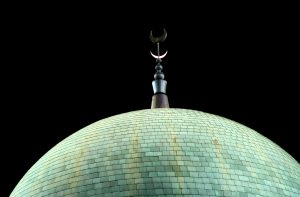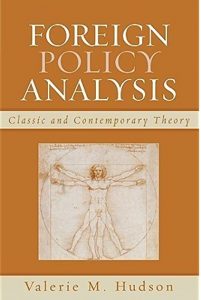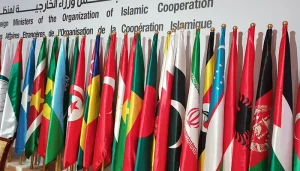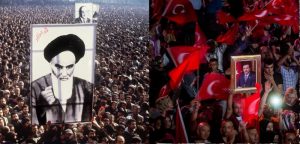The Role of Islam in Foreign Policymaking – Part I
Emir Hadzikadunic || 23 March 2022
 Abstract
Abstract
Religion has been often ignored dimension of statecraft, more so by realist or neorealist schools. This article explores the question of how a number of states, in which all, or a considerable part of their population is Muslim, incorporate Islam as a guiding principle into their broader foreign policy conduct. In this regard, itreviews a selected number of foreign policy cases using individual, domestic and international levels of analysis in which diverse Islamic incentives from major theoretical perspectives interplay with foreign policy. Its ultimate objective is in providing deeper synthesis of the literature on Islam in foreign policy making and relating it to major International Relation (IR) theories.
Foreign policy; Foreign policy analysis; Islam and diplomacy; Islam and foreign policy
Introduction
Foreign policy is generally associated with a state’s formal relations with other states and international actors in the system.[1] That policy includes specific activities of national governments defined and taken through their official representatives such as heads of state, foreign ministries, embassies, diplomats, or other authorized agents to achieve specific foreign policy goals. James N. Rosenau speaks more specifically about three foreign policy aspects: (1) principles and orientations, (2) commitments and decisions, and (3) behavior and actions.[2] Wilkenfield and others define foreign policy as official actions and reactions which state governments initiate or receive and subsequently react to, for the purpose of altering or creating a condition outside their territorial sovereign boundaries.[3] Brian White explains that foreign policy is formulated within the state, but unlike domestic policy is directed and implemented in the environment external to that state.[4] In this respect, William Wallace sees it as a boundary issue between domestic politics and the international environment.[5]
 Foreign policy analysis (FPA) is a complex inquiry about diverse sources of influence that describe, explain or predict a state’s external relations. It is a complex inquiry because it employs, as suggested by various scholars, multilevel assessments with diverse frameworks, methodologies, and theories. David Singer thus introduced scholarly approaches by discussing two levels of analysis. According to him, foreign policy could be explained either at the level of nation-states or at the level of international system.[6] Snyder, Bruck, and Sapin viewed decision-makers “as operating in dual aspect setting so that apparently unrelated internal and external factors become related in the actions of the decision-makers.”[7] James N. Rosenau identified a sequence of explanatory variables and divided them into five categories: idiosyncratic, role, governmental, societal, and systemic.[8] In a particular case study, Graham Allison constructed different models - the rational actor, the organizational, and governmental politics - to explain the guiding principles that the Kennedy administration applied during the Cuban Missile Crises.[9] Kenneth Waltz offered three ‘images of analysis’ as three different categories in understanding the causes of conflicts between states. While the first (human nature) and second (domestic make-up) describe forces for state policies, the third category (international system) offers the framework for international politics.[10] Valerie M. Hudson compiled different factors from the most micro level with political psychology of world leaders to the international systems as the most abstract foreign policy assessment. As she argued, variables at different levels of abstraction ultimately interact in the real world.[11]What influences foreign policy, therefore, “depends on the situation at hand, on one hand, and on how the researcher formulates his explanatory framework, on the other”.[12]
Foreign policy analysis (FPA) is a complex inquiry about diverse sources of influence that describe, explain or predict a state’s external relations. It is a complex inquiry because it employs, as suggested by various scholars, multilevel assessments with diverse frameworks, methodologies, and theories. David Singer thus introduced scholarly approaches by discussing two levels of analysis. According to him, foreign policy could be explained either at the level of nation-states or at the level of international system.[6] Snyder, Bruck, and Sapin viewed decision-makers “as operating in dual aspect setting so that apparently unrelated internal and external factors become related in the actions of the decision-makers.”[7] James N. Rosenau identified a sequence of explanatory variables and divided them into five categories: idiosyncratic, role, governmental, societal, and systemic.[8] In a particular case study, Graham Allison constructed different models - the rational actor, the organizational, and governmental politics - to explain the guiding principles that the Kennedy administration applied during the Cuban Missile Crises.[9] Kenneth Waltz offered three ‘images of analysis’ as three different categories in understanding the causes of conflicts between states. While the first (human nature) and second (domestic make-up) describe forces for state policies, the third category (international system) offers the framework for international politics.[10] Valerie M. Hudson compiled different factors from the most micro level with political psychology of world leaders to the international systems as the most abstract foreign policy assessment. As she argued, variables at different levels of abstraction ultimately interact in the real world.[11]What influences foreign policy, therefore, “depends on the situation at hand, on one hand, and on how the researcher formulates his explanatory framework, on the other”.[12]
Main stream theories, such as realism and liberalism generally ignore religion as a source of influence in international relations. Even constructivism, which highlight ideational factors, such as collectively held beliefs, norms and identities, has underestimated the role of religion. Founding fathers of these three theories as well as their contemporary scholars rather use secular terminology and hardly adopt to religious notions and frameworks. As Carolyn M. Warner and Stephen G. Walker contend: “religion’s influence in the interactions of states is one of the great and least understood security challenges of the twenty-first century.”[13] Islam as an intervening variable that facilitates the formulation and implementation of specific foreign policies is overlooked too. Different reasons can be given for limited literature on the subject. First of all, this is not unexpected from the West’s perspective, for the West lacks a discourse on religion in international relations.[14] For that reason, as argued by Elizabeth S. Hurd, it fails to understand the Islamic argument.[15] Second, the study of how Islamic faith affects political activity has been more the domain of social or political sciences and far less the domain of foreign policy analysis. In other words, Islam has gained dominance within the national boundaries, and little of it is seen in the area of international relations. Third, Islam is not tangible and easily observable in foreign policy to be explored systematically. Mehmet Ozkan and Kingshuk Chatterjee even contend that “it is not possible to essentialize any single set of values (except in very generalized terms) that can be identified as exclusively Islamic (i.e. found in no other belief system), or even generally understood as such across the Muslim world.”[16]
 This elusive role of Islam in broader foreign policy conduct needs further elaboration though. First, Islam evolves in constant interaction with specific historic conditions. It is also in continuous interplay with diverse Muslim leaders. For example, Kemal Ataturk’s Turkey attempted to extradite Islam from the Turkish Republic and Turkish leadership from the Islamic world. However, in Recep Tayyip Erdogan’s Turkey, Islam appears a more important tool in foreign policymaking. Second, Islam as a religion has a different status in different Muslim states. Turkey had clearly declared a separation of politics from religion; Saudi Arabia had distinctly integrated royal power, religion, and the ruling family; Iran regards itself as an Islamic republic; Pakistan was founded in the name of Islam even though the state separates its political system from religion; Egypt, Syria, and Indonesia tacitly separate politics from religion without a clear declaration.[17] Third, unlike Catholic Church, Islam is not attached to any transnational institution. For that reason, its impact on foreign policy may not be explored the way Catholic religion can. Fourth, historical interpretations vary as different Muslim states follow different madhhabs, faith practices, and traditions. In some cases, these interpretations are more dramatic. For example, Iran’s foreign policy occasionally focuses on traditionally inherent religious methods of Twelver Shı’ism, namely taqiyyah[18]. Fifth, Muslim diplomacies may differently value foreign policy ends for which their Islamic ethics are well suited. For example, while Saudi Arabia and Iran both define themselves as Islamic, the differences between their foreign policies could hardly be more dramatic.[19] Sixth, Islamization in the Muslim world is also a complex interaction of attributing values, wishful thinking, true beliefs, devotional, and oppressive instruction.[20] As Berger suggested, “it may very well be the discourse of the true believer, but also of the shrewd politician.” Seventh, Muslim countries that claim their foreign policies as being guided by Islam may have different motivations for their claim. On some occasions, it can be a particular understanding of Islam in a given situation (contextual). On others, Muslim states may also deploy Islam to legitimize any other course of action (instrumental).[21] Eight, Muslim states vary widely in size, geography, ideology, economic output, military might or soft power. In practical terms, it makes it “difficult to find any two Muslim countries pursuing similar policies motivated by similar considerations of the faith in exclusion of other factors.”[22] Indeed, rather than making a general assessment, we ought to ask what country is picking what elements from the Islamic faith to pursue what foreign policy.
This elusive role of Islam in broader foreign policy conduct needs further elaboration though. First, Islam evolves in constant interaction with specific historic conditions. It is also in continuous interplay with diverse Muslim leaders. For example, Kemal Ataturk’s Turkey attempted to extradite Islam from the Turkish Republic and Turkish leadership from the Islamic world. However, in Recep Tayyip Erdogan’s Turkey, Islam appears a more important tool in foreign policymaking. Second, Islam as a religion has a different status in different Muslim states. Turkey had clearly declared a separation of politics from religion; Saudi Arabia had distinctly integrated royal power, religion, and the ruling family; Iran regards itself as an Islamic republic; Pakistan was founded in the name of Islam even though the state separates its political system from religion; Egypt, Syria, and Indonesia tacitly separate politics from religion without a clear declaration.[17] Third, unlike Catholic Church, Islam is not attached to any transnational institution. For that reason, its impact on foreign policy may not be explored the way Catholic religion can. Fourth, historical interpretations vary as different Muslim states follow different madhhabs, faith practices, and traditions. In some cases, these interpretations are more dramatic. For example, Iran’s foreign policy occasionally focuses on traditionally inherent religious methods of Twelver Shı’ism, namely taqiyyah[18]. Fifth, Muslim diplomacies may differently value foreign policy ends for which their Islamic ethics are well suited. For example, while Saudi Arabia and Iran both define themselves as Islamic, the differences between their foreign policies could hardly be more dramatic.[19] Sixth, Islamization in the Muslim world is also a complex interaction of attributing values, wishful thinking, true beliefs, devotional, and oppressive instruction.[20] As Berger suggested, “it may very well be the discourse of the true believer, but also of the shrewd politician.” Seventh, Muslim countries that claim their foreign policies as being guided by Islam may have different motivations for their claim. On some occasions, it can be a particular understanding of Islam in a given situation (contextual). On others, Muslim states may also deploy Islam to legitimize any other course of action (instrumental).[21] Eight, Muslim states vary widely in size, geography, ideology, economic output, military might or soft power. In practical terms, it makes it “difficult to find any two Muslim countries pursuing similar policies motivated by similar considerations of the faith in exclusion of other factors.”[22] Indeed, rather than making a general assessment, we ought to ask what country is picking what elements from the Islamic faith to pursue what foreign policy.
Alternative option would be to deny all those differences and pursue general foreign policy trends or seek its regularity-seeking nature. Such preference would be based on the uniformity status of Islam within the Muslim world. In other words, Muslim states would be unrestricted by any other barriers related to diverse geographies, ethnicities, cultures, faith practices, or madhabs. One often presented assumption from this methodology is that Muslim countries with Islamic discourse as their common force would have foreign policy goals, commitments, or actions radically different from those of Western countries. In this realm, Samuel Huntington most famously wrote his influential book on the “clash of civilizations” and generalized Islamic civilization as a single variable or meta-force in international affairs. He also argued that a country’s religious heritage determines its enemies and allies in the post-Cold War era. Another similar hypothesis “is that a common religious heritage may provide common norms which, in turn, might facilitate convergence on policy, including international treaties.”[23] This scholarly approach to seek regularity-seeking nature may also feature some specific foreign policy issues such as common diplomatic efforts by Muslim countries within international bodies to have the defamation of Islam criminalized at the international level, efforts largely opposed by the EU member states on the ground of protecting the rights to freedom of expression. However, this setting of the Muslim world against the Western world leaves out an important question, namely the role of Islam in relations within the Muslim world.[24] Huntington’s approach also leaves out individual, domestic or any other diversity within Muslim majority states. From that perspective, it is not easy to analyse Islam as monolithic entity because it is comprised of different interpretations, communities, and practices. Thus, an effort to assess the influence of religion in a particular case, for example, “Islam and the foreign policy making of Afghanistan,” might miss differences within Islamic tradition of that particular state and their varied potential influences on Kabul’s foreign policy.
Three levels of analysis
 This article chooses to explore the question of how several Muslim states, restricted by their particularities, have incorporated Islam into their foreign policy conduct. The issue at hand is not only about Islam as a religion per se, but Islam as an identity, culture, belief system, or any other major incentive derived from the social tradition of Islam. The article excludes politics, norms or values that are claimed to be ‘Islamic’ by violent and outrageous groups such as Da’ish (or the Islamic state). This study approaches three major levels in foreign policy analysis - individual and domestic (within nation-states), and international (between nation-states) - and looks for specific occasions of any major impact using diverse theoretical frameworks, methodologies and literature on the subject. In the first part, the article selects few prominent Muslim leaders and reviews the relationship between their Islamic leanings from one side and foreign policy views, commitments, and actions from the other. Certainly, in reviewing the recent diplomatic history across the Muslim world, it would be difficult to portray all major events as simply a consequence of geopolitical realities, ignoring the impact of Muslim leaders such as General Muhammad Zia-ul-Haq, Suharto, Ayatollah Ruhollah Khomeini, Mahathir Mohamad, Saddam Hussain, Recep Tayyip Erdogan... Their often-debated individual attempts to Islamize or de-Islamize their states domestically is not the subject and therefore largely ignored in this part. The second part chooses a few Muslim countries and reviews how their shared Islamic ideas, identities, norms, symbols or regime ideology shape their foreign policy preference. In some specific cases, it also reviews local Islamic groups with a profound impact on foreign policymaking. Again, their impact on social or domestic environments is not the subject of this article and therefore largely ignored. In the third part, the article reviews in both directions the relationship between Islamic incentives and pressures within selected Muslim states on one hand and sudden geopolitical changes from the external environment on the other. The emphasis here is on the international system or the regional subsystem in which more powerful Muslim states operate mainly by rules of balancing behavior.
This article chooses to explore the question of how several Muslim states, restricted by their particularities, have incorporated Islam into their foreign policy conduct. The issue at hand is not only about Islam as a religion per se, but Islam as an identity, culture, belief system, or any other major incentive derived from the social tradition of Islam. The article excludes politics, norms or values that are claimed to be ‘Islamic’ by violent and outrageous groups such as Da’ish (or the Islamic state). This study approaches three major levels in foreign policy analysis - individual and domestic (within nation-states), and international (between nation-states) - and looks for specific occasions of any major impact using diverse theoretical frameworks, methodologies and literature on the subject. In the first part, the article selects few prominent Muslim leaders and reviews the relationship between their Islamic leanings from one side and foreign policy views, commitments, and actions from the other. Certainly, in reviewing the recent diplomatic history across the Muslim world, it would be difficult to portray all major events as simply a consequence of geopolitical realities, ignoring the impact of Muslim leaders such as General Muhammad Zia-ul-Haq, Suharto, Ayatollah Ruhollah Khomeini, Mahathir Mohamad, Saddam Hussain, Recep Tayyip Erdogan... Their often-debated individual attempts to Islamize or de-Islamize their states domestically is not the subject and therefore largely ignored in this part. The second part chooses a few Muslim countries and reviews how their shared Islamic ideas, identities, norms, symbols or regime ideology shape their foreign policy preference. In some specific cases, it also reviews local Islamic groups with a profound impact on foreign policymaking. Again, their impact on social or domestic environments is not the subject of this article and therefore largely ignored. In the third part, the article reviews in both directions the relationship between Islamic incentives and pressures within selected Muslim states on one hand and sudden geopolitical changes from the external environment on the other. The emphasis here is on the international system or the regional subsystem in which more powerful Muslim states operate mainly by rules of balancing behavior.
Indeed, there are limits to what each level of analysis can offer in this regard. For example, neither the human nature of Saudi King Faisal nor the Saudi domestic context during his reign in the mid-60s can fully explain the Islamic unity and solidarity that Saudi Arabia’s foreign policy promoted in the regional subsystem at the time. In this regard, it is expected to find many occasions in which Islamic constraints from different levels interplay, interact or reinforce each other. Thus, individual traits of Ayatollah Rouhollah Khomeini have interacted with domestic attributes inaugurated by the 1979 Islamic Revolution and external realities from the international system to promote Iranian foreign policy of “Neither East, nor West, but Islamic solidarity”. It is also important to highlight here that all Islamic related constrains throughout this text are treated as they appear in a given time in each specific case. The study does not attempt to characterize them as more or less religious or more or less Islamic. Nor does it attempt to moralize the field of foreign policy by declaring specific diplomatic moves contrary to Islamic discourse or in conformity with it. Instead, it brings various and, on some occasions, opposing views on the subject as different foreign policies that are being labeled as Islamic may be Islamized for other underlying purposes.
Endnotes:
[1] M. Fatih Tayfur, “Main Approaches to the Study of Foreign Policy: A Review,” METU Studies in Development, Vol. 21, No.1 (1994), 113.
[2] J. N. Rosenau, “The Study of Foreign Policy,” in J. Rosenau et al. (eds.), World Politics: An Introduction, New York: The Free Press, (1976), 16-19.
[3] J. Wilkenfield et al., Foreign Policy Behavior, The Interstate Behavior Analysis Model, Beverly Hills: Sage publications, 1980, 22.
[4] B. White, “Analyzing Foreign Policy: Problems and Approaches,” in M. Clarcke and B. White (eds.). Understanding Foreign Policy, Hants: Edward Elgar, (1989), 5.
[5] W. Wallace, “Establishing the Boundaries,” in J. Barber and M. Smith (eds.), The Nature of Foreign Policy: A Reader, 1974: 12-17.
[6] David Singer, “The Level of Analysis Problem in International Relations,” in K. Knorr and S. Verba (eds.), The International System: Theoretical Essays, Princeton: Princeton University Press, (1961), 72-92.
[7] R. C. Snyder, H. W. Bruck and B. Sapin, Foreign Policy Decision Making: An Approach to the Study of International Politics, Glencoe, IL: Free Press, 1962, 74.
[8] J. N. Rosenau, “Pre-Theories and Theories of Foreign Policy,” in Approaches in Comparative and International Politics, edited by R. Barry Farrell, Evanston, IL, 1966, 122. See also: James E. Harf et. al., “Systemic and External Attributes in Foreign Policy,” in Comparing Foreign Policies, ed. James N. Rosenau (USA: Sage Publications, 1974), 236-237.
[9] Graham T. Allison, “Conceptual Models and the Cuban Missile Crisis,” The American Political Science Review 63, no. 3 (1969): 689-718. Accessed February 13, 2021. doi:10.2307/1954423.
[10] Kenneth Waltz, Man, the State, and War: A Theoretical Analysis, New York: Columbia University Press, 2001.
[11] Valerie M. Hudson, Foreign Policy Analysis, Classic and Contemporary Theory, Maryland: Rowman and Littlefield, 2007, 165.
[12] Tayfur, “Main Approaches to the Study of Foreign Policy: A Review,” 138.
[13] Carolyn M. Warner and Stephen G. Walker, “Thinking about the Role of Religion in Foreign Policy: A Framework for Analysis,” Foreign Policy Analysis (2011) 7, p. 113.
[14] Maurits Berger, Religion and Islam in Contemporary International Relations, Netherlands Institute of International Relations ‘Clingendael’, 2010, p. 31., accessed December 20, 2020: https://www.clingendael.org/sites/default/files/pdfs/20100400_cdsp_book_mberger.pdf
[15] Elizabeth S. Hurd, “Political Islam and Foreign Policy in Europe and the United States,” Foreign Policy Analysis, 3, no. 4, (2007): 345-367.
[16] Mehmet Ozkan and Kingshuk Chatterjee, “Islamic Values in Foreign Policy – Perspectives on ‘Secular Turkey and ‘Islamic’ Iran,” in Values in Foreign Policy: Investigating Ideals and Interests (2019): 116.
[17] WU Yungui, “The Influence of Islam over the Foreign Policies of Contemporary Islamic Countries,” Journal of Middle Eastern and Islamic Studies (in Asia) Vol. 5, No. 3, (2011): 2-3, accessed January 10, 2021:
[18] From one side, the doctrine of taqiyyah was fashioned as an instrument to safeguard the faithful and protect their lives while keeping alive the Shı’a claim to the spiritual primacy and leadership of the Islamic community. Carel M. Landsberg and Hussein Solomon, “How do Iranian Diplomats Negotiate?,” American Foreign Policy Interest, 32:1, (2010): 14-15, DOI: 1080/1080392090354808. Amir Taheri defined taqiyyah as ‘double dealing’ or the ‘pursuit of two different objectives at the same time.’ See: Amir Taheri, The Spirit of Allah— Khomeini and the Islamic Revolution (London, 1985), 110, 232.
[19] W. Andrew Terrill, “The Saudi-Iranian Rivalry and the Future of Middle East Security,“ Strategic Studies Institute, Dec (2011): page ix, accessed January 10, 2021: https://www.files.ethz.ch/isn/142831/pub1094.pdf
[20] Berger, Religion and Islam in Contemporary International Relations, 8.
[21] Ozkan and Chatterjee, “Islamic Values in Foreign Policy…,” 116.
[22] Ibid.
[23] Warner and Walker, “Thinking about the Role of Religion in Foreign Policy…,” 119.
[24] Berger, Religion and Islam in Contemporary International Relations, 3.
 Dr Emir Hadzikadunic is a Senior Research Fellow at the Islamic Renaissance Front. He holds a PhD in International Relations from the International University of Sarajevo and was the Ambassador of Bosnia and Herzegovina to the Islamic Republic of Iran (2010-2013) and Malaysia (2016-2020). He is currently a Distinguished Fellow at Faculty of Administrative Science & Policy Studies, Universiti Teknologi MARA (UiTM) Malaysia. This essay also appears on Context: Journal of Interdisciplinary Studies at https://cns.ba/contextojs/index.php/context
Dr Emir Hadzikadunic is a Senior Research Fellow at the Islamic Renaissance Front. He holds a PhD in International Relations from the International University of Sarajevo and was the Ambassador of Bosnia and Herzegovina to the Islamic Republic of Iran (2010-2013) and Malaysia (2016-2020). He is currently a Distinguished Fellow at Faculty of Administrative Science & Policy Studies, Universiti Teknologi MARA (UiTM) Malaysia. This essay also appears on Context: Journal of Interdisciplinary Studies at https://cns.ba/contextojs/index.php/context